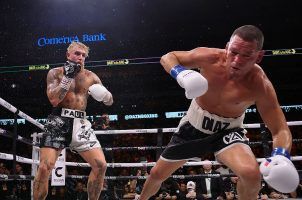Spain Gaming Regulator’s Former Leader to Take Experience to the UK
Posted on: April 5, 2022, 09:04h.
Last updated on: July 22, 2022, 02:40h.
Juan Espinosa García led Spain’s gaming regulator from 2016 to 2020. He remains close to the industry and will use his expertise to assist gaming industry companies in the UK.

Espinosa will continue his work in the gaming industry, but not in Spain. He already helped the UK’s Betting and Gaming Council (BGC) on a one-off assignment. Espinosa will continue to serve the country’s gaming efforts on other fronts.
From December 2016 to May 2020, Juan Espinosa García oversaw Spain’s gaming regulator, the Directorate-General for the Regulation of Gambling (DGOJ, for its Spanish acronym). During his tenure, he was involved in developing several projects, including establishing several policies that are still in place.
Before Espinosa could join any independent companies after leaving the DGOJ, he had to have authorization from Spanish authorities. This is to ensure there is no conflict of interest. Spanish media outlet El Boletín reports that Spain’s Treasury and Civil Service department approved the transition.
Former DGOJ Takes Experience International
Espinosa has significant legal and political experience that can benefit the BGC. He studied in the country, receiving two master’s degrees from the University of Edinburgh and King’s College of London. In addition, he has a law degree from Spain’s University of Granada.
His experience in the gaming sector goes beyond the DGOJ, as well. Espinosa became an external adviser to the Spanish Association of Digital Gaming (JDigital) in November 2020.
It isn’t clear what services Espinosa provided to the BGC, and the organization didn’t elaborate when questioned by Casino.org. However, he will reportedly join Deel, Inc., which helps companies contract workforces globally. It also provides legal guidance in that regard in various countries.
Deel reportedly has several gaming-related clients, including Esports Entertainment Group, Hero Gaming, and Zelos Gaming.
El Boletín adds that Espinosa will join a French law firm, Samman Law & Corporate Affairs, specializing in regulatory and public affairs.
Spain’s Sports Betting Market Slows
With the DGOJ, Espinosa helped develop policies related to communications and advertising for the gaming industry. Not long after his departure, new measures arrived to limit where and when operators could advertise.
The new regulation came into force in May of last year. But a moratorium postponed the implementation until August. The only caveat was that the contracts needed to be in place before the regulation’s approval in 2020.
As a result, since September 1 of last year, online bookmakers can only advertise between 1 AM and 5 AM. In addition, digital advertising is shown only on the operators’ portals. At the same time, on social media, companies can only advertise to their followers.
Since the change, online bookmakers have cut their advertising investment in half. Between September and December of 2020, operators dedicated €90 million (US$98.73 million) to advertising. A year later, the amount fell to €46 million (US$50.46 million), according to the Ministry of Consumer Affairs.
In addition to advertising, sponsorships are also limited by the new law. Consumer legislation established that teams can not sign sponsorship contracts with bookmakers carrying gambling advertising on T-shirts and equipment. They cannot issue betting advertising on sporting events held outside of the early-morning hours.
These restrictions have caused investments in sponsorships to slide. From September to December of last year, the segment received only €1.6 million (US$1.75 million). In the same period of 2020, the budget for sponsorships was €11.6 million (US$12.72 million). As a result, generally speaking, the advertising industry in Spain is dealing with losses of more than €50 million (US$54.85 million) in just four months.
Related News Articles
Bermuda Getting First Casino After Nine-Year Wait
Drake Bets Big on Jake Paul vs. Nate Diaz Fight and Misses
Dubai Delays Casino Resort Approvals in Potential Blow to MGM
Most Popular
Tropicana Las Vegas to be Imploded, Tentative Date Set
VEGAS MYTHS BUSTED: Golden Gate is the Oldest Casino in Vegas
DraftKings Leads Bank Sports Betting Survey, ESPN Bet Surprises
Most Commented
-
End of the Line for Las Vegas Monorail
— April 5, 2024 — 90 Comments -
Long Island Casino Opponents Love New York Licensing Delays
— March 27, 2024 — 5 Comments
















No comments yet